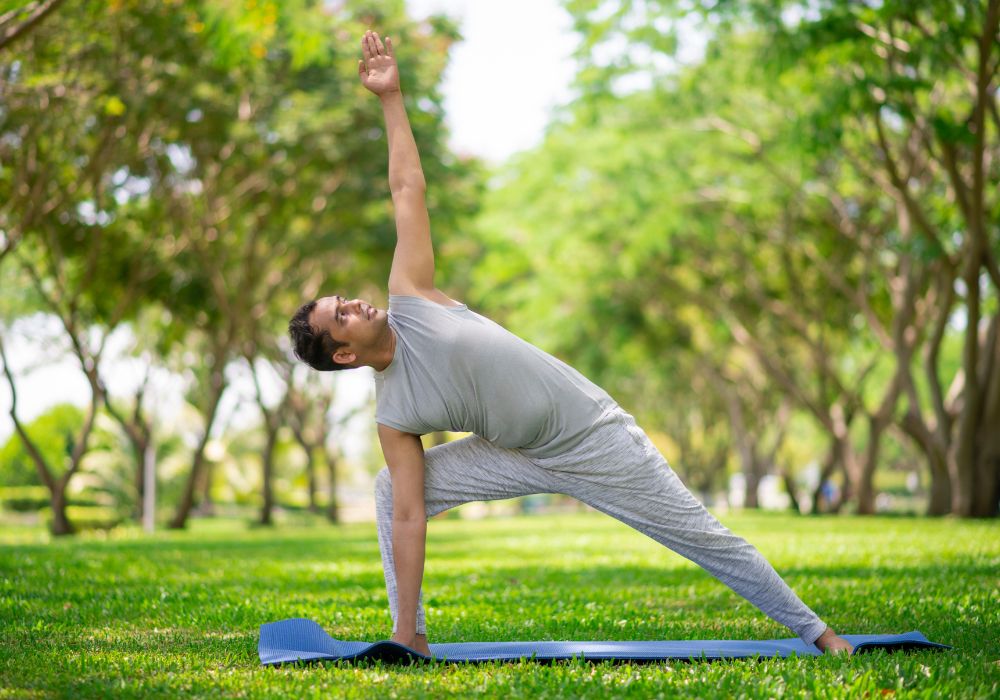Be it chronic stressors or the cumulative effects of everyday events, stress can take a toll on your emotional, physical, and social well-being. Fortunately, though, like beauty, stress too lies in the eyes of the beholder. You might not be able to control the stressors fully, but you can learn to manage their impact on you effectively.
Some practical ways of managing stress are not that difficult to implement and go a long way in improving your psychosocial fitness. One of them is exercising, the benefits of which have been long argued for by psychologists and medical professionals alike.
The Science Behind Exercise As A Stress Reliever
Exercising and other physical activities promote the release of happy hormones- endorphins in the brain. These are natural mood uplifters of the body and reduce the perception of pain and unpleasant emotions. Another way in which physical movement reduces stress is by reducing the levels of cortisol in the body and thereby bringing the body’s vitals back to normal after a stressful situation. Moreover, exercising not only improves the current state but also promotes resilience in facing future stressful situations.
One of the most talked about facts about exercising is that it enhances the production of neurotransmitters like serotonin (happiness molecule) and dopamine (pleasure molecule), thus giving the mind and body a sense of calm.
Some direct and indirect ways exercise acts as a stress buster are:
- Cognitive Distraction- The repetitive motions involved in physical activities coupled with breathing techniques can help focus on the grounding reality. Shifting one’s focus to the body instead of stressful situations can be a helpful way of relief.
- Order And Satisfaction- Have you heard someone feel a sense of achievement and fulfillment right after a workout? Commitment to a daily workout session can make you feel accomplished and bring order to your daily routine.
- Improved Sleep Cycle- Where on the one hand, stress can significantly disrupt your sleep cycle and cause sleep-related issues like insomnia or hypersomnia, exercising regularly can undo these effects by promoting relaxation.
- Boost Self-Esteem- Regular physical activity can help develop a positive self-image more aligned with one’s ideal self. Achieving workout goals and feeling physically fitter can boost self-confidence, thus increasing the overall value we attach to ourselves.
- Promotes Social Support- Very often, in our attempt to participate in physical activities, we encounter the added bonus of meeting new people. Be it a dance class group or someone you befriend on a morning jog, meeting new people can open the gates for new experiences and increase your social circle. These connections can act as support systems when you need them.
Is Exercising For You?
Amongst the many myths concerning exercising, one stands heads and shoulders above others – that only vigorous and fast exercises done for a prolonged time during the day are beneficial. Worry not if you are a beginner and afraid of taking the first step toward your workout goals! Exercising helps the most when it aligns with your personal goals and your bodily needs. Heavy strenuous physical activities that exhaust the body’s resources end up doing more harm than good.
Advancement in the understanding of stress management has resulted in the development of several other types of physical activities that help in effectively dealing with stress apart from traditional cardiovascular exercises like swimming, running, cycling, etc.
If you find it challenging to engage in heavy exercises, here are some alternatives you can give a shot:
- Tai Chi- A form of Chinese martial arts that promotes relaxation by combining deep breathing techniques with slow, gentle movements.
- Yoga– Yoga aims to bring the mind, body, and soul together. The eight limbs of yoga are designed to bring calm, confidence, and a state of well-being and centeredness. Physical postures combined with certain principles promote holistic well-being and are found to be positively linked to resilience.
- Dance And Aerobics- Simply moving along the rhythm of music can do wonders for your mind and body. Additionally, some people consider dance as a form of creative self-expression that leads to emotional healing and gives strength in trying times.
- Progressive Muscle Relaxation- If you want to start slow and know your body first, this is one of the best ways to move in that direction. It involves relaxing and tensing the muscles alternatively. This evidence-based relaxation technique has been found to effectively promote pleasant thoughts, cope with daily stressors, and manage the psychophysiological effects of stress.
- Pilates– A form of workout that has been recently popularized. Pilates involves controlled movements to promote flexibility and balance and uplift mood.
- Sports– If simply running or jogging is something that doesn’t interest you, taking part in any sports activity of your liking can serve the dual purpose of uplifting your mood as well as helping you remain fit.
Remember, starting slowly and finding your own pace is entirely normal. What matters is consistency rather than the level of activity involved.
Moreover, it is equally important to remember that the time of the day you choose to exercise can vary according to your schedule and preference. Some people like to exercise first thing in the morning to gear up for the rest of the day, while some prefer working out later in the day to relieve themselves of the built-up stress from the day. Choose a time that aligns with your schedule and one you can commit to daily.
How To Get The Most Out Of Exercising?
With exercising, one exciting thing is that how you exercise matters more than how much you do it. When the goal of exercising is stress relief, it becomes all the more important to gain awareness of your efforts. Some ways you can achieve the maximum output are:
- Set Clear, Measurable, And Attainable Goals- It is essential to set goals in which you can measure your progress. Also, setting realistic stepwise goals can help boost your confidence as well as know your body better. In contrast, unrealistic goals that can be very hard to achieve can lead to dissatisfaction and quitting tendencies.
- Know Your Preferences- If what you do is what you enjoy, you will need fewer external reinforcements to remain consistent.
- Do It With A Friend- Participating in exercises with a friend can mean two stress-relieving resources working together. The company can help motivate you as well as make the activity more enjoyable.
Now that you know about the pros of physical activities, tie up your shoelaces and get ready to face your challenges in a new empowered way.





